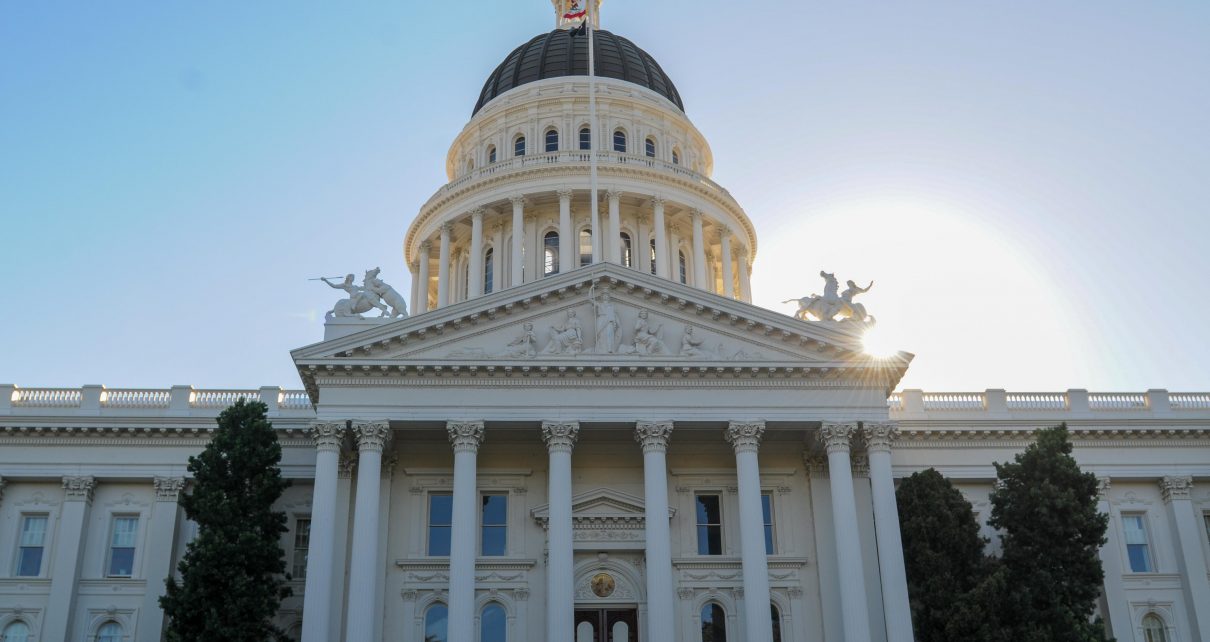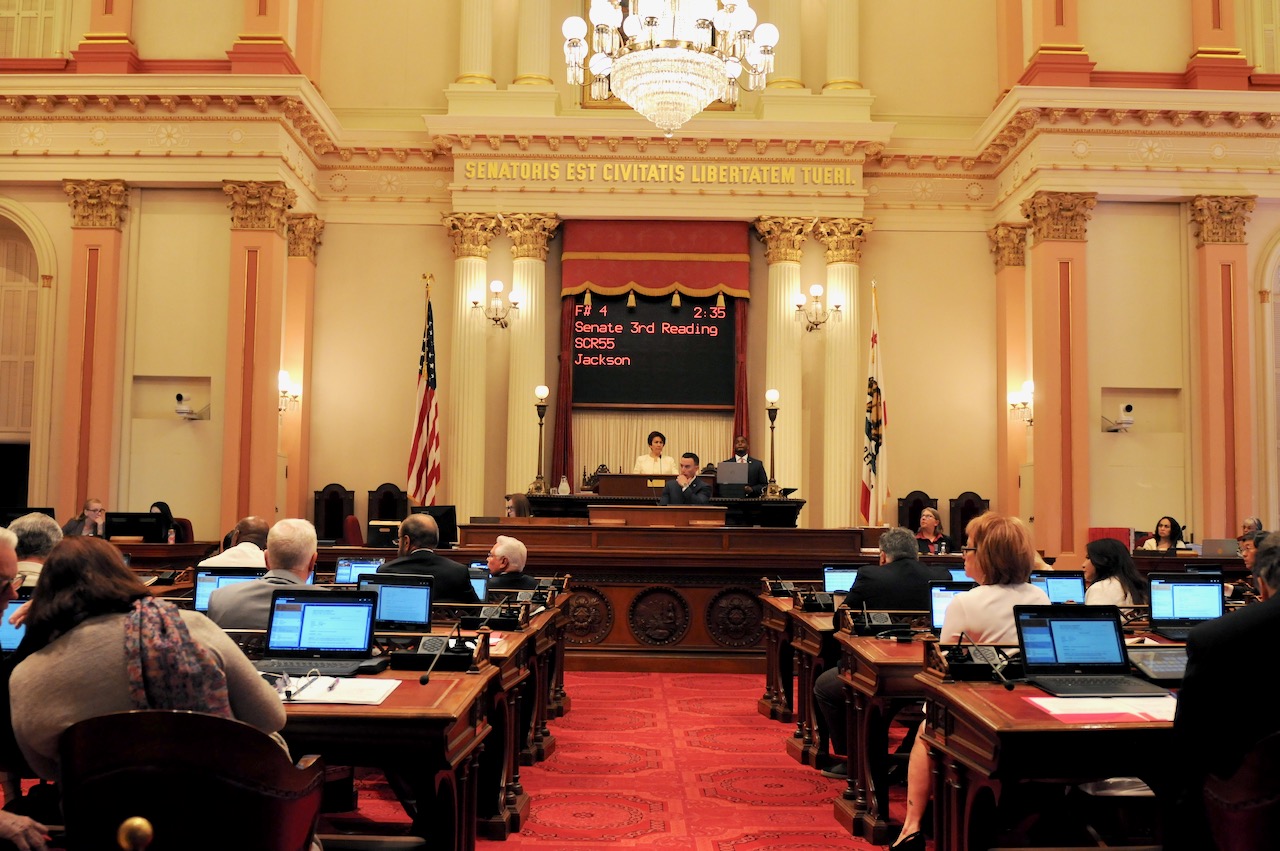
California State Capitol. (Photo: Kevin Sanders for California Globe)
Holding Government Accountable
As the citizens of America, it is our job to hold our government accountable to ensure our freedom
By Adina Flores, June 19, 2023 2:45 am
In the year 2023, conservatives are fleeing California in waves as progressive leadership reigns, and the cost of living continues to skyrocket. As unorthodox policies are presented and passed through the legislature, constituents wonder if there is any hope for their beloved state. While Republicans remain skeptical of the governance under the Newsom Administration, many are unsure on how to get involved to create change. With city, county and state agencies working hand in hand, citizens have the ability to take action at the local level to influence revolution across the nation.
How?
California Public Records Act (CPRA)
The California Public Records Act (CPRA) is a series of laws designed to ensure the public has access to public records of governmental bodies across the State of California. According to Ballotpedia, “Public records are defined as any writing containing information relating to the conduct of the public’s business prepared, owned, used or retained by any state or local agency regardless of physical form or characteristics.”
“Every state office, officer, department, division, bureau, board and commission or other state body or agency is covered by CPRA except the state legislature and the courts.” “Local agencies are covered, including counties, cities, school districts, municipal corporations, districts, political subdivisions, or any board, commission or agency thereof; other local public agencies; or nonprofit entities that are legislative bodies of a local agency. See California Government Code §6252(a).” Stakeholders may request texts, email communications, contracts, etc. from both work designated and personal electronic devices. There is no regulation for the use of these records as outlined by the CPRA. Requests may be made in person, by telephone, email, and possibly through the agency’s website. Ten days are initially allowed for an agency to comply with a records request, and any applicable fees are specific to each agency.
Freedom of Information Act (FOIA)
As detailed by the U.S. Department of State, “The Freedom of Information Act (FOIA) generally provides that any person has the right to request access to federal agency records or information except to the extent the records are protected from disclosure by any of nine exemptions contained in the law or by one of three special law enforcement record exclusions.”
“The nine exemption categories that authorize government agencies to withhold information are:
- classified information for national defense or foreign policy
- internal personnel rules and practices
- information that is exempt under other laws
- trade secrets and confidential business information
- inter-agency or intra-agency memoranda or letters that are protected by legal privileges
- personnel and medical files
- law enforcement records or information
- information concerning bank supervision
- geological and geophysical information”
A request may be initiated by visiting FOIA’s agency search webpage. The website supplies contact information for each applicable agency, as well as an index of government agencies. Some agencies cannot yet receive FOIA requests through FOIA.gov. For those agencies, this site will provide you with the information you need to submit a request directly to the agency.
Fair Political Practices Commission (FPPC)
Per their website, “The Fair Political Practices Commission is a five-member independent, non-partisan commission that has primary responsibility for the impartial and effective administration of the Political Reform Act.” The Act regulates campaign financing, conflicts of interest, lobbying, and governmental ethics. The Commission’s objectives are to ensure that public officials act in a fair and unbiased manner in the governmental decision-making process, to promote transparency in government, and to foster public trust in the political system.”
Every elected or appointed official and public employee who plays a key role in making or contributing to governmental decisions must submit a Statement of Economic Interest, also known as the Form 700. This form must be submitted upon assuming office, annually and leaving office to remind the individual of potential conflicts of interest when participating in the decision making process. Sources of income for both the individual and their spouse, including business positions, investments and real property must be itemized. These records are available for public disclosure and may be possibly accessible through the online portal. If not available online, these documents may be directed to the agency in question for release. If a member of the public discovers that issues are present such as omission of income, non-filing of the Form 700, gifts received or conflict of interest in public contracts, a complaint may be initiated with the FPPC via their website. Within 14 days of receiving the sworn complaint, the Enforcement Division will inform the complainant as to how it intends to proceed. Complaint and case information is housed online for the public to stay updated on the status. The agency has established an informal advice line for citizens to ask basic questions surrounding compliance of the act.
A behested payment is one issued because of a request by a public official or employee directing someone to make that payment. A “payment” can be cash, goods, or services. Per the FPPC, “Under California’s transparency laws, an elected official who fundraises or otherwise solicits payments from one individual or organization to be given to another individual or organization may be required to report the payment”. “Officials must report the behested payments within 30 days of the date on which the payment meets or exceeds $5,000 from a single source.” Payments may be searched online by the official, payor or payee, or the raw data may be downloaded to Microsoft Excel.
California Open Meeting Act
As cited from Ballotpedia, “The California Open Meeting Act is a composition of the Ralph M. Brown Act, which legislates local governments and political subdivisions, and the Bagley-Keene Open Meeting Act, which legislates the executive branch of the state, and the Grunsky-Burton Open Meeting Act, which legislates methods by which public meetings are conducted on the state level.”
The Bagley-Keene Open Meeting Act applies to California State agencies, boards, and commissions to assure that “the meetings of public bodies and the writings of public officials and agencies shall be open to public scrutiny.” The act facilitates accountability and transparency of government activities and protects the rights of citizens to participate in State government deliberations. It differs from California’s Brown Act, which applies to open meetings at the county and local level. Under the Brown Act, the public is entitled to comment on any matter within the subject matter jurisdiction of the legislative body, as well as any agenda item.
If the public is privy to a violation (pg. 31) of The Brown Act, they may submit a formal complaint to cure and correct the perceived offense within 30 days of the action. This complaint may be submitted to the local agency as well as the district attorney. Each member of a legislative body who has taken action in violation of any provision of the Brown Act, and where there was willful deprivation of information to the public, is guilty of a misdemeanor (§ 54959). Civil remedies (injunction, mandamus, declaratory relief and voiding past actions of the body) are provided in case of violation of the Brown Act (§§ 54960 and 5490.1) pursuant to §§ 54953, 54954.2, 54954.5, 54954.6, 54956, and 54956.5 (that is, for violations to requirements for: general open meeting, agenda posting, closed sessions, tax and assessment, special meetings and, emergency meetings). A court may award court costs and reasonable attorney fees to the plaintiff in an action brought pursuant to §§ 54960 and 5490.1.
California Secretary of State
The California Secretary of State’s Cal-Access website allows the general public to view statewide lobbying efforts categorized by firms, employers, individual lobbyists, etc. The database is helpful to help identify the people, organizations, and firms that have registered with the Secretary of State’s office to lobby the Legislature and administrative branches of state government. Financial disclosure reports are filed with the Secretary of State’s Office on a quarterly basis throughout the two-year legislative session.
According to the Secretary of State website, “A business entity can be formed in California online at bizfileOnline.sos.ca.gov. Filing tips are included with most online forms.”
“Once the business entity is formed or registered with the California Secretary of State online at bizfileOnline.sos.ca.gov, the entity must obtain the necessary licenses and/or permits.” The California Business Search provides access to available information for corporations, limited liability companies and limited partnerships of record with the California Secretary of State.”
Office of the Attorney General (OAG) – Registry of Charitable Trusts
According to the OAG’s website, “Every charitable corporation, unincorporated association, charitable trustee and other legal entities holding property for charitable purposes, must file with the Attorney General an initial registration form and other documents required by law. Under Government Code section 12585, initial registration must be filed within 30 days of first receiving charitable assets. Assets include public donations, property, government grants, noncash donations, and/or any contribution of value.” The Registry of Charitable Trusts may be reviewed by the public through the verification search tool. The user may verify whether a charitable organization or fundraiser has complied with the Attorney General’s registration and reporting requirements. You may also review and download records and public filings that a charitable organization or fundraiser has submitted to the Attorney General’s Registry of Charitable Trusts. This includes copies of annual registration renewal forms (Form RRF-1), IRS Forms 990, raffle reports and fundraising reports that are in the Registry’s database. Information is retrieved from the database in real-time but data and statuses may change intraday as filings are processed.
Internal Revenue Service (IRS) Tax Exempt Organization Search
An individual may review an organization’s tax exempt status and filings, as well as their eligibility to receive tax-deductible charitable contributions via the online search tool. According to the IRS website, “Although they are exempt from income taxation, exempt organizations are generally required to file annual returns of their income and expenses with the Internal Revenue Service. Small tax-exempt organizations with gross receipts under a certain threshold may be required to file an annual electronic notice. Some organizations, such as churches and certain church-affiliated organizations, are not required to file annual returns or notices.”
These are just a few resources available which may help bring transparency to the people. As the citizens of America, it is our job to hold our government accountable to ensure our freedom. For true democracy, we must remain diligent, informed and inquisitive.
“I know no safe depository of the ultimate powers of the society but the people themselves; and if we think them not enlightened enough to exercise their control with a wholesome discretion, the remedy is not to take it from them, but to inform their discretion by education. This is the true corrective of abuses of constitutional power.”― Thomas Jefferson, Letters of Thomas Jefferson
- Gov. Newsom Chairs Dem Governors Assoc. Policy Committee Following $1.5M Pfizer PAC Donation - September 26, 2023
- ‘Equity:’ the New Term for Misappropriation? - September 6, 2023
- OPINION: California Representatives Emphasize Profit Over People - August 31, 2023





Just moved from the Bay Area to another state. Feel like I didn’t leave as much as I was forced out! When I visit friends in the Bay Area they’re still obsessed with Trump and gobble up the fake news and talking points like it’s gospel. It’s like talking with people who still believe in the Easter Bunny. Where do you even begin the discussion? I don’t see how corrupt politicians in California will ever be held accountable until people’s daily lives are radically, negatively affected and they wake up from their delusion. The good / bad news is it’s coming; wildfires, power outages, pensions being cutoff, inflation, crime, etc. But will it be too late?